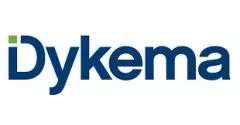- within Litigation, Mediation & Arbitration, Employment and HR and Consumer Protection topic(s)
Takeaways
- Michigan lawmakers fast-tracked a new 24% wholesale cannabis tax with no hearings or industry input.
- The bill attempts to sidestep voter-approved protections by avoiding the 75% supermajority required to amend Michigan's cannabis initiative.
- The tax could exceed 24% for non–vertically integrated businesses, as rebates and discounts cannot reduce the taxable amount.
As everyone in Michigan's cannabis industry is all too painfully aware, Michigan's Legislative leaders and Governor have agreed to create a new (minimum) 24% wholesale tax on the state's cannabis industry. The Michigan House of Representatives passed the bill (House Bill 4951) last Thursday, September 25, and action by the State Senate is expected on Tuesday, September 30.
HB 4951 was introduced just nine days before passage, and initially didn't mention marijuana. In a legislative sneak attack on the industry, the House suspended its own rules, discharged the bill to the House floor, added in the new tax, and immediately passed it. These maneuvers allowed the Legislature to prevent any hearing or opportunity for outside input. The Michigan Senate is now poised to again deny the public any voice. Although Michigan's cannabis industry was created through a voter initiative that governs the wholesale and retail sale of marijuana, the Legislature isn't amending that initiative. Instead, they're using a new bill in an attempt to evade the 75% supermajority vote otherwise required to amend an initiated act.
Understandably, the Legislature's moves to sidestep both public input and constitutional protections for voters have caused a great deal of enmity from the cannabis industry. (The Legislature's tongue-in-cheek "estimate" of "$420" million in revenue is a further sign of disrespect. Spoiler alert: the tax will never generate that much revenue.) Legal challenges are inevitable, but in the absence of an injunction, the tax will take effect only three months from now.
The tax will apply to the first sale to an adult-use retailer by a grower, processor, or medical provisioning center. It will also apply as a production tax to adult-use microbusinesses, a license type intended to benefit social equity businesses.
For businesses that aren't vertically-integrated (under common control), the tax will be based on the actual price paid by the retailer. However, that price must include any other invoiced charges (e.g., the cost of secure transport), but rebates, volume-based discounts, or other reductions cannot be applied. In other words, the tax can far exceed 24%.
For vertically-integrated businesses and microbusinesses, the tax will be based on quarterly estimates of an "average wholesale price" calculated and published by Michigan's Department of Treasury. One can certainly expect that this government-created estimate will inform IRS consideration of 280E calculations for vertically-integrated companies.
The following chart illustrates the tax:
| Who is Selling to Retailer | Who Pays the Tax | Basis of Tax Calculation |
| Unrelated grower/processor or medical provisioning center | Grower/processor Provisioning center | Actual price paid for inventory, including secure transport, no reductions |
| Related grower/processor/PC | Grower/processor/PC | "Average wholesale price" for inventory |
| Microbusiness | Microbusiness | "Average wholesale price" based on production |
More detailed coverage of this issue can be found in this earlier story on the Cannabis Law Blog. Stay tuned for further developments.
The content of this article is intended to provide a general guide to the subject matter. Specialist advice should be sought about your specific circumstances.



